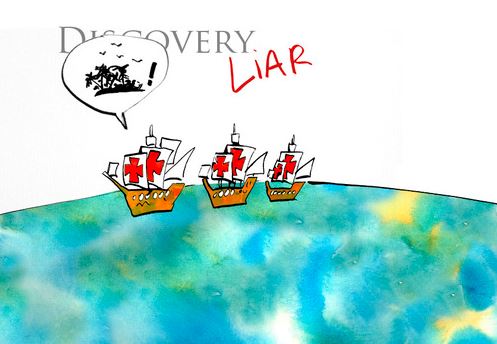The Conscious Mind Is Limited - Be Aware And Be Prepared
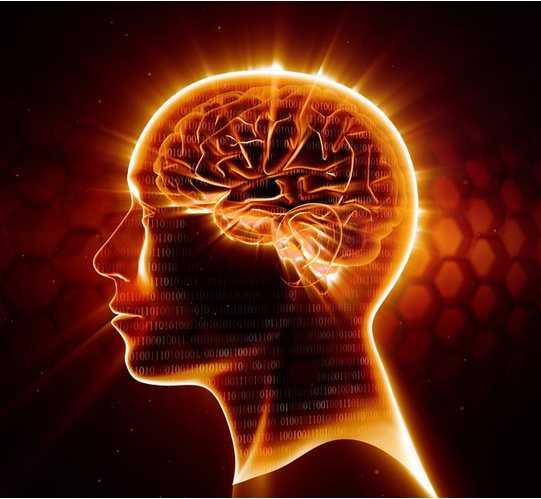
The Conscious Mind Is Limited In So Many Ways
The conscious mind is limited in so many ways. There are some who would argue that there is no such thing as conscious thought and that it represents little more than an internal multi-modal display of thoughts arising from processes that are hidden to us.
There appears to be a sound neurological basis to this perspective and the process [based on principles derived from complex systems] is known as emergence.
The conventional perception is that conscious thought directly guides and controls our actions. However there is growing body of research that suggests that conscious thought does not guide moment-to-moment actions but serves social and cultural functions.
But for our current purpose, let's continue with conventional understanding of the conscious mind as that part of us where we are aware of our thoughts as they take place.
Let's temporarily park the idea that the
content of the conscious mind is an illusion and take a practical look at some of
the many ways in which the conscious mind is limited.
Being aware is the first stage of being prepared.
[1] The Linear Scanning System Of Conscious Attention

Human intelligence has a serious limitation. It is a scanning system of conscious attention, and that scanning system is linear. It examines the world in lines, as you would pass a flashlight beam across a darkened room, focusing on one thing at a time, sequentially.
For example, to gain an education, we scan millions of lines of information.
We do it that way because that’s the best our attention can do, scanning and taking in one or at least just a few bits of information at a time, one after another.
But the kicker is that the real world doesn’t happen one thing at a time, one thing after another.
The real world is multidimensional, with a lot happening all at once, and it comes at us so fast and all at once in such a way that we could never scan it in the narrow focused linear way humans typically think.
[2] Thought vs Experience
The conscious mind is limited by the abstractions, concepts, beliefs and maps we make to try to make sense of the complex world we live in.
Because in so doing we confuse 'the world as-it-is' with 'the world as-it-is-thought-about-and-described'. This is often expressed as confusing the map and the territory.
We confuse our thoughts and more importantly our emotional associations with an experience – with the experience. Reality is the territory – the unfiltered, uncategorized, direct experience now in the present moment.
The direct experience of eating tasty food – the unconditional love of a parent or child – the energy and abandonment of a good sexual experience - cannot be confused with our inner representations of them or the words we may use to attempt to describe these powerful experiences.
Imagine how many words you would need to describe the taste of freshly ground coffee to someone who has never heard of nor seen yet alone tasted coffee, compared with the directness of brewing them a cup and letting them taste it for themselves.
And the difference between 'the world as-it-is' with 'the world as-it-is-thought-about-and-described' is vast.
One is the map, and the other is the actual territory. And when you’re not aware of yourself except in a symbolic way, when you’re only aware of the map you’ve made of yourself, the "you" that consists of consciously reviewed words and symbols, the concept you have of who you are, you’re not really aware of yourself at all.
[3] The Limitations Of Language
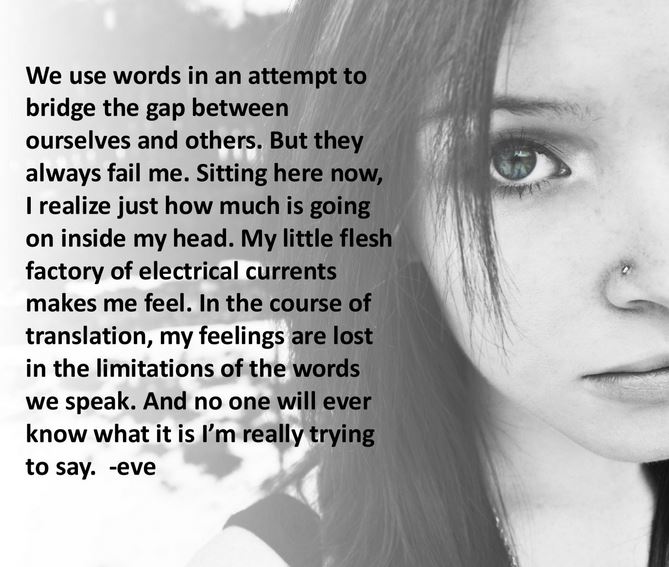
The conscious mind is limited by the torrent of inner noise pouring from our thought stream. We are in a profound sense lost for words.
A lot of what causes us to identify with this image we have, of ourselves and the world is built into our language. Notice that in our language, every sentence has a verb, an action of some sort, and a noun that does the action. But is this really the way it is?
So if there are no separate things, how can we have a noun, a separate thing, doing something? Isn’t this, too, just a social convention, but one that doesn’t describe reality accurately.
The structure of our language just reinforces that our concept of what is real (that there are separate things, that acts on other separate things) is real, when it isn’t.
Your image of yourself is deficient. It has to be. It’s just a map, an image, a concept you have of "you." It’s the menu, but you are the meal itself.
You really are all the connections, all the processes of the universe, a centre of awareness smack in the middle of everything, and that everything is you.
The concepts we employ, the categorizations we apply and the words we choose and use to articulate a direct experience put us in a double bind, and it is this:
For everything we gain by being able to verbalize and articulate an experience we lose an equal if not greater amount of the full meaning of that experience by the very process of articulation.
[4] The Limitations Of Context & Framing

The conscious mind is limited by the lost meaning in our words and this becomes exacerbated as the words we use to describe something are always heard or read within a context and a framing.
To illustrate and personalize this right now, the words that I am writing to you here in this article - and that I can hear in my head as I type this - have a meaning to me that is created and shaped by my inner map of reality.
However you, as you read this will be receiving, filtering and interpreting these words with your own inner map of reality.
What I mean to say and what you hear may not be the same thing!
This insight has serious and dramatic ramifications because families and societies have been divided and many wars have been fought over the meaning and interpretation of words.
[5] The limitations Of Dogmas And Beliefs
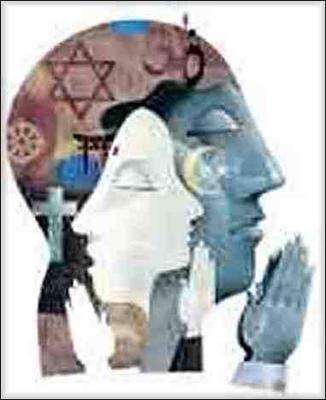
The conscious mind is limited
by the beliefs it holds and the dogmas that it adheres to.
In the field of religious beliefs there is so much
argument, conflict and suffering over “correct” beliefs – or orthodoxy –
declarations and adherence to propositional statements of faith.
As Eckhart Tolle put it:
"Dogmas – religious, political, scientific – arise out of the erroneous belief that thought can encapsulate reality or the truth.
Dogmas are collective conceptual prisons. And the strange things is that people love their prison cells because they give them a sense of security and a false sense of 'I know'.
Nothing has inflicted more suffering on humanity than its dogmas. It is true that every dogma crumbles sooner or later, because reality will eventually disclose its falseness; however, unless the basic delusion of it is seen for what it is, it will be replaced by others."
[6] The conscious mind is also limited in other ways it:
- Gets sabotaged by your lizard brain
- Falls for the illusion of a separate self
- Forgets that you are not your thoughts
- Gets caught up in the thought stream
- Is subject to a range of cognitive biases
So where does this leave us?
In my experience there are 2 basic ways of dealing with all this:
- Be aware, understand and accept the considerable limitations of your conscious mind and don't take it too seriously!
- Learn how to stop thinking and turn it off and how to gain a greater level of control over your conscious mind.
Next Article: Duality & Life Beyond Your Thinking Mind
Return to: Keeping It Real - Self Improvement Articles
LATEST ARTICLES
Dealing With Distraction - Learning How To Live With Your "Attention Autopilot"
 Living With Your Attention Autopilot The good news about your Attention Autopilot is that it will keep you safe. It is continuously scanning your immediate environment for threats. The bad news is tha…
Living With Your Attention Autopilot The good news about your Attention Autopilot is that it will keep you safe. It is continuously scanning your immediate environment for threats. The bad news is tha…The Time Of Your Life - Recognising Moments Of Alignment For Action
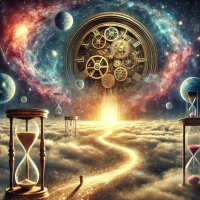 How will you recognise your moment of alignment for action? In this article I want to look at our relationship with time and in the context of the two main themes of this site, firstly as a thinking s…
How will you recognise your moment of alignment for action? In this article I want to look at our relationship with time and in the context of the two main themes of this site, firstly as a thinking s…The Metagame Approach to Second Order Thinking - 5 Guiding Principles
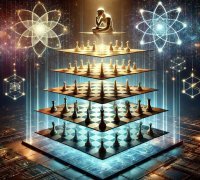 How To Position Yourself For Survival & Success In A Complex Environment We treat life as though it is a complicated system, and our thinking skills and mental models are focused on understanding its…
How To Position Yourself For Survival & Success In A Complex Environment We treat life as though it is a complicated system, and our thinking skills and mental models are focused on understanding its…Outcome Over Optics - Long Game Outcomes Over Short-Term Ego Gains
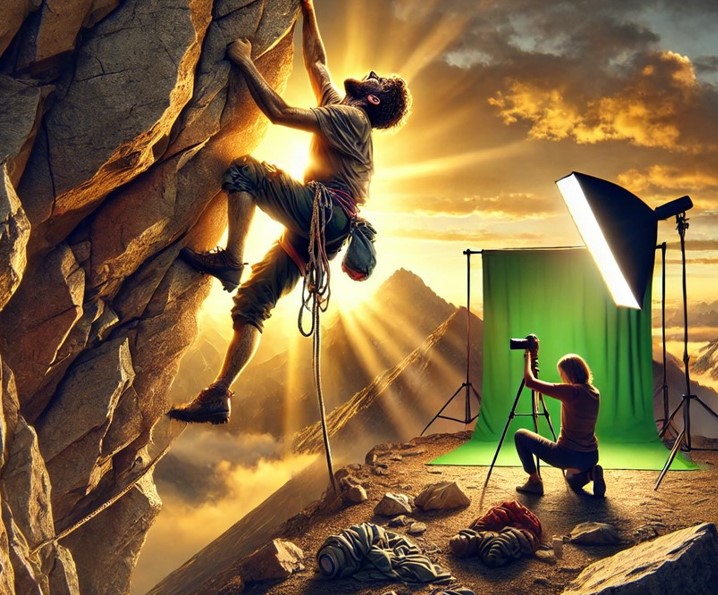 The Day I Learned To Focus On Outcome Over Optics I have never forgotten the day I learned to focus on outcomes over optics and figured out a very simple way of saving myself several hundred thousand…
The Day I Learned To Focus On Outcome Over Optics I have never forgotten the day I learned to focus on outcomes over optics and figured out a very simple way of saving myself several hundred thousand…The ETTO Principle - Why Near Enough Can Be Good Enough
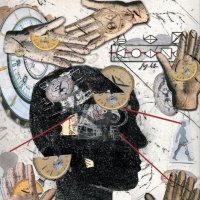 How To Balance the Efficiency-Thoroughness Trade Off The ETTO Principle describes the inherent trade-off between working efficiently and working thoroughly. This trade-off is something that affects…
How To Balance the Efficiency-Thoroughness Trade Off The ETTO Principle describes the inherent trade-off between working efficiently and working thoroughly. This trade-off is something that affects…Master The Art Of Drawing The Bow
 Focus On Process Not Outcome In so many areas of our lives, we focus on the outcome, not the process that we follow to achieve it. In the western world, we are conditioned to pay less attention to how…
Focus On Process Not Outcome In so many areas of our lives, we focus on the outcome, not the process that we follow to achieve it. In the western world, we are conditioned to pay less attention to how…And So This Is Christmas
 There Is No Path To Peace - The Path Is Peace Thich Nhat Hanh, the renowned Vietnamese Zen Buddhist monk, teacher, and peace activist, often spoke about peace as a state of being that begins within on…
There Is No Path To Peace - The Path Is Peace Thich Nhat Hanh, the renowned Vietnamese Zen Buddhist monk, teacher, and peace activist, often spoke about peace as a state of being that begins within on…Curiosity Skilled The Cat - Optimize For Interesting
 Curiosity Fuels Excellence The old adage, “Curiosity killed the cat,” warns of the dangers of venturing too far into the unknown. But what if we reimagine it not as a risk but as a gateway to developi…
Curiosity Fuels Excellence The old adage, “Curiosity killed the cat,” warns of the dangers of venturing too far into the unknown. But what if we reimagine it not as a risk but as a gateway to developi…Let Stillness Speak - Living Within A Complex System
 To let stlllness speak is to learn it's first major lesson: you are not your thoughts. To let stillness speak is about stepping back from the constant chatter of your mind and allowing a deeper, quiet…
To let stlllness speak is to learn it's first major lesson: you are not your thoughts. To let stillness speak is about stepping back from the constant chatter of your mind and allowing a deeper, quiet…Understanding Complex Systems Thinking - It's Not Complicated
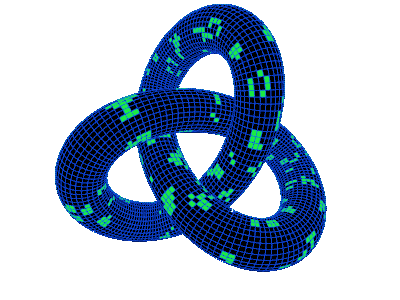 Understanding, and being able to work with, complexity is an important thinking skill.
We are all working with complex systems, and we do so every day. The biggest one is life itself. We automaticall…
Understanding, and being able to work with, complexity is an important thinking skill.
We are all working with complex systems, and we do so every day. The biggest one is life itself. We automaticall…Stay On The Bus - When To Keep On Going
 The Helsinki Bus Station Theory
Have you ever started a new project, initiative or role with a big vision and a determination to make a difference? Initially you were full of enthusiasm and highly mo…
The Helsinki Bus Station Theory
Have you ever started a new project, initiative or role with a big vision and a determination to make a difference? Initially you were full of enthusiasm and highly mo…Zen Thoughts Email Series
 Conversations With A Friend Zen Thoughts is an email series of 50 short messages spread over 3 months. The messages are written in the style of a conversation with a friend who is going through a toug…
Conversations With A Friend Zen Thoughts is an email series of 50 short messages spread over 3 months. The messages are written in the style of a conversation with a friend who is going through a toug…How to Get What You Value by Changing What You Measure
 Give Up Control & Gain Influence To Get What You Want
The metrics we choose to focus on can significantly shape our outcomes, sometimes in ways we don't intend. The challenge is to make sure that you…
Give Up Control & Gain Influence To Get What You Want
The metrics we choose to focus on can significantly shape our outcomes, sometimes in ways we don't intend. The challenge is to make sure that you…How to Become A Master At Overcoming Hard Moments
 "The best in the world are not the best because they win every point. It's because they lose again and again and have learned how to deal with it." This quote from Roger Federer has got a lot of cover…
"The best in the world are not the best because they win every point. It's because they lose again and again and have learned how to deal with it." This quote from Roger Federer has got a lot of cover…Drop The Story - Deal With Your Demons and Transform Your Experience
 Are you living your life from the stories you tell yourself? Learning how to drop the story and deal with that voice in your head can be a game changer. When you can do this you will have a powerful t…
Are you living your life from the stories you tell yourself? Learning how to drop the story and deal with that voice in your head can be a game changer. When you can do this you will have a powerful t…
